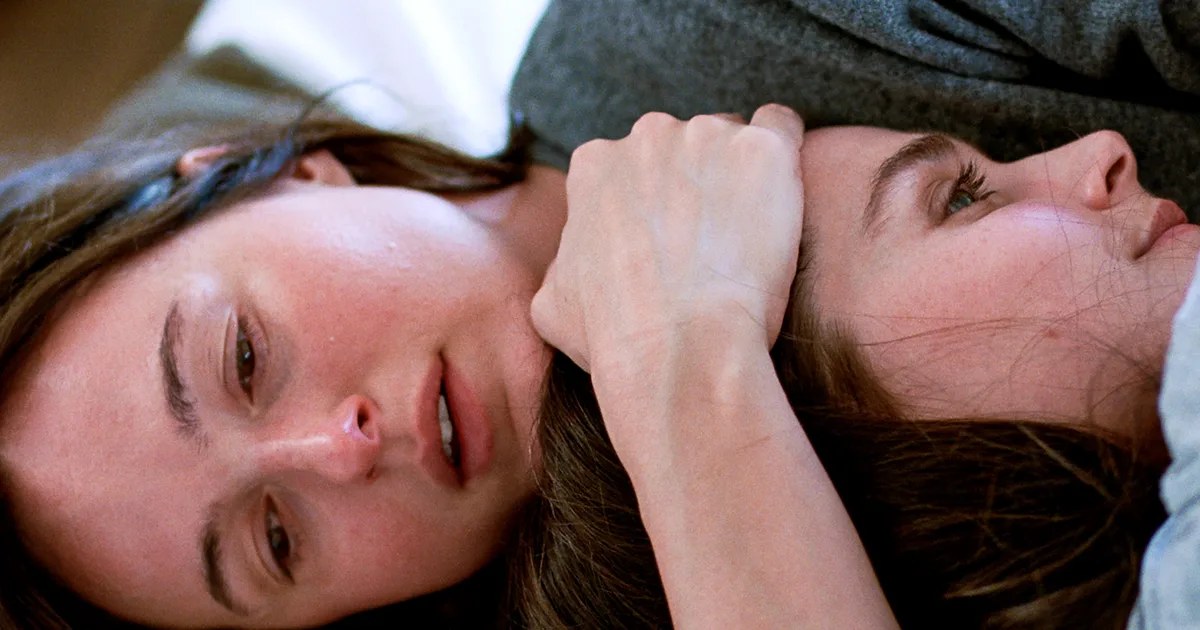
Nothing brings a family together like a funeral, and at the wake for Nora (Renate Reinsve) and Agnes’ (Inga Ibsdotter Lilleaas) mother, their estranged father Gustav (Stellan Skarsgård) strolls through the door as though nothing has changed. His reappearance in his daughters’ lived threatens to disturb the tentative peace they both have, particularly for Nora, a flighty actress suffering from a crisis of confidence. To make matters worse, the long-in-the-tooth filmmaker has a new project in mind, and would like his eldest daughter to star in it, despite Nora’s incredulity at her father’s return as though no time has passed at all.
Joachim Trier’s second collaboration with Renate Reinsve has a tough act to follow in The Worst Person in the World, which made a star of his muse and brought him to global attention through a starry release via Neon and MUBI. He returns to the grounded interpersonal dynamics which occupy his cinema, and in Sentimental Value‘s touching opening, the narration recalls an essay Nora wrote as a child from the perspective of their family home, reflecting on its history and the disintegration of their family. In a wry Trierism, the narrator reveals that Nora rediscovered the essay while looking for a piece to read for her drama school audition, “But chose Nina’s monologue from ‘The Seagull’ instead.”
Get more Little White Lies
Nora, Nina – the similarities go deeper than the name, both actresses with a pervasive melancholy, though Nora doesn’t seem to share Nina’s desire for fame at any cost. When we meet her as an adult, she’s actually attempting to flee from the theatre she’s due to perform in, beset by an anxiety attack, to the frustration of the staff who have to tape her into her costume when she rips it in a panic. She couldn’t be more different from Rachel Kemp (Elle Fanning), the famous American movie star who connects with her father at a film festival and ends up taking the part in his film that Nora didn’t want. Rachel is young and sparky, hungry and studious. For her, acting is the art of solving mysteries; for Nora it seems more vital, allowing her to become someone else. In her day-to-day she continually battles a sadness of which she can’t quite find the root; a parallel is drawn between Nora and her paternal grandmother, who died by suicide 15 years after being released from a prison camp for anti-Nazi activities, and whose absence had a profound impact on Nora’s father.
Sentimental Value is moving in moments, and Trier and co-writer Eskil Vogt’s dialogue is as sharp and quick-witted as ever (a gag about the DVDs Gustav gifts his nine-year-old grandson for his birthday brought the house down in the Cannes press screening) but the film falls short of the greatness achieved in The Worst Person in the World or Oslo 31st August, which covered similar ground with more emotional depth. While the depiction of the strong bond between Nora and Agnes formed out of their parents’ difficult marriage is touching, the story’s conclusion seems signposted from the beginning, and it operates at the same emotional pitch throughout, withholding information to the point that it feels like the characters are being deliberately kept at a frustrating distance. But Skarsgård is the best he’s been in years as a father fundamentally unable to articulate himself in any way other than his work, and oblivious as to why his daughters feel such frustration with him for a lifetime of distance, and there’s keen wisdom in Sentimental Value’s observation of the gulf between who our parents are and who we wish they were.
To keep celebrating the craft of film, we have to rely on the support of our members. Join Club LWLies today and receive access to a host of benefits.
